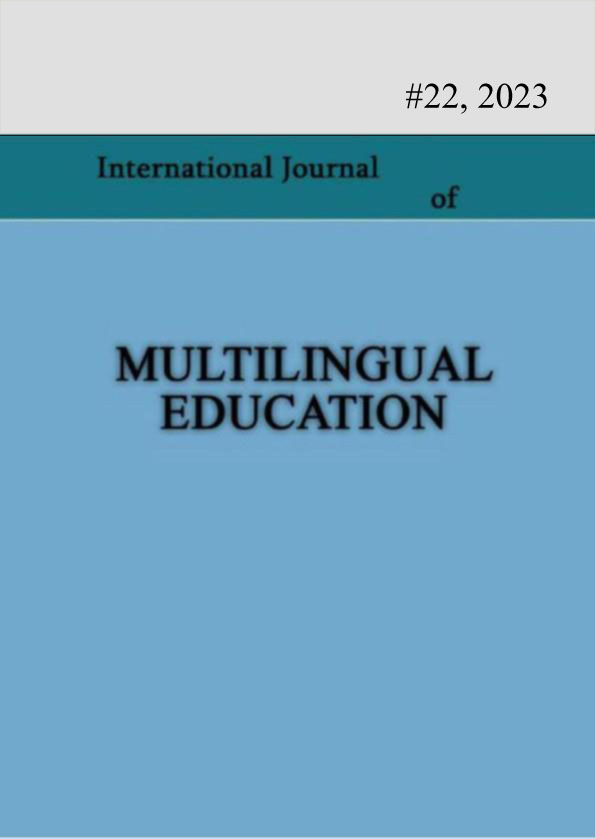Teaching forms of language ethics to non-Georgian speakers (within the 1+4 program)
Keywords:
euphemism, politeness, etiquette, Georgian as a second language.Abstract
Learning a language is improbable without taking into account the socio-cultural context, and etiquette is an integral part of the society's culture, which is manifested in the language along with other factors. When teaching the means of expressing etiquette, we think that the language learner should first understand that the euphemism of speech in the Georgian language is realized in different ways: through a grammatical morpheme, syntactic means, lexical substitution, and intonation. At the early level of language competence (A1-A2), the learner should know about the pronoun ‘tkven’ (you) and the second function of the plural ending -t (shen khar (you are) – tkven khart (you are) (polite), as well as about the verb substitute forms (brdzandebit (you are (polite), dabrdzandit (sit down (polite), mobrdzandit (come in (polite), miirtvit (helpyourself)…). At the next levels of language learning (B1-B2), we gradually move on to the replacement of the lexical form and introduce the diversity of verb euphemisms in the Georgian language (saying, commanding, reporting, etc., for example, in the phrases required when drawing up official documents. The language learner should also know that the manner or intonation of pronouncing words/sentences has the function of semantic differentiation: an etiquette form pronounced with a different intonation may contain nuances of irony and mockery instead of politeness. A B2 level learner should be able to perceive syntactic forms when: a) a sentence expresses euphemism; b) euphemism is expressed by a collocation (for example, forms of address, subjunctive mood, etiquette interjections, so-called “compensating words and phrases” used to construct the text...). The report will discuss the methods of teaching the mentioned language units using both existing and new resources and means
References
Gabunia K., Gochitashvili K. (2011). Language Etiquette and Second Language Teaching, Bilingual Education, N 8. Center for Civic Integration and Inter-ethnic Relations
Ebralidze L., Euphemisms and their translation strategies (on the material of Georgian and English languages), Electronic bilingual scholarly peer-reviewed journal "Spekali" of the Faculty of Humanities at Ivane Javakhishvili Tbilisi State University, N11. Translation Studies. http://www.spekali.tsu.ge/index.php/ge/article/viewArticle/11/110
Saville-Troike, M. (2016). Introduction to Second Language Acquisition. Second Edition (Transl: K. Gochitashvili, ed. K. Gabunia). Center for Civic Integration and Interethnic Relations. Tbilisi.
POLITENESS IN SECOND LANGUAGE TEACHING - Proceedings of SOCIOINT 2022- 9th International Conference on Education & Education of Social Sciences 13-14 June 2022- Online Conference https://www.ocerints.org/%20socioint22_epublication/papers/Neda%20Kameh%20Khosh1.pdf https://www.ice.ge
Downloads
Published
How to Cite
Issue
Section
License
Copyright (c) 2023 Tamar Ninidze

This work is licensed under a Creative Commons Attribution-NonCommercial 4.0 International License.
Copyright (c) - Authors who publish with this journal agree to the following terms: Authors retain copyright and grant the journal the right of first publication with the work simultaneously licensed under a Creative Commons Attribution-Noncommercial 4.0 International License, which allows others to share the work with an acknowledgement of the work's authorship and initial publication in this journal. Authors are permitted and encouraged to post their work online (e.g., in institutional repositories or on their personal website) prior to and during the submission process, as it can lead to productive exchanges, as well as earlier and greater citation of published work (see The Effect of Open Access). Authors may enter into separate, additional contractual arrangements for the non-exclusive distribution of the journal's published version of the work (e.g., post it to a repository or publish it in a book), with an acknowledgement of its initial publication in this journal.

